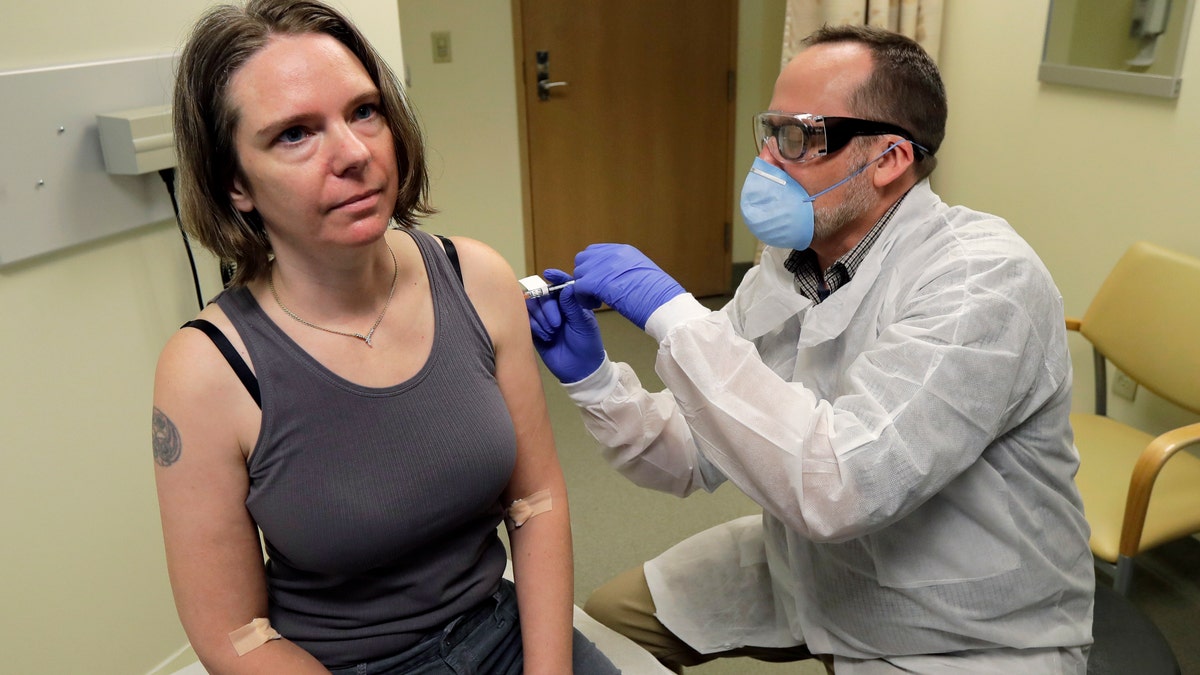California, Florida, Texas report record high COVID-19 deaths
Governors are feeling the pressure once again to balance health and safety measures with the economy; William La Jeunesse reports.
A Seattle woman who was the first person in the U.S. to receive an experimental COVID-19 vaccine test shot says she feels “fantastic.”
Jennifer Haller from Seattle received the shot in March as part of a first-stage study of the vaccine, named mRNA-1273. The study is taking place at the Kaiser Permanente Washington Research Institute.
KOMO News reports that Haller, a 43-year-old operations manager at a small tech company, is not feeling any ill effects from the jab.
“It’s been 16 weeks since I had the first dose," she said, according to KOMO News. "I feel fantastic."
The vaccine candidate was developed by the National Institutes of Health and Massachusetts-based biotechnology company Moderna. There is no chance participants could get infected from the shots because they don't contain the coronavirus itself.

March 16, 2020: A pharmacist gives Jennifer Haller, left, the first shot in the first-stage safety study clinical trial of a potential vaccine for COVID-19, the disease caused by the new coronavirus, at the Kaiser Permanente Washington Health Research Institute in Seattle. The vaccine by Cambridge, Massachusetts-based Moderna Inc., generated antibodies similar to those seen in people who have recovered from COVID-19 in a study volunteers who were given either a low or medium dose. (AP Photo/Ted S. Warren, File)
On May 18, Moderna announced positive Phase 1 data from the vaccine. “mRNA-1273 was generally safe and well tolerated, with a safety profile consistent with that seen in prior Moderna infectious disease vaccine clinical studies,” it said.
Last month, Moderna announced a Phase 3 study of the vaccine, scheduled for July, which is expected to involve 30,000 subjects.
COVID US Cases Interactive:
CLICK HERE FOR COMPLETE CORONAVIRUS COVERAGE
As of Friday afternoon, more than 12.3 million coronavirus cases have been diagnosed worldwide, with over 3.1 million in the U.S., according to data from Johns Hopkins University. The disease has accounted for at least 556,211 deaths around the world, including at least 133,542 in the U.S.
The Associated Press contributed to this article. Follow James Rogers on Twitter @jamesjrogers










































